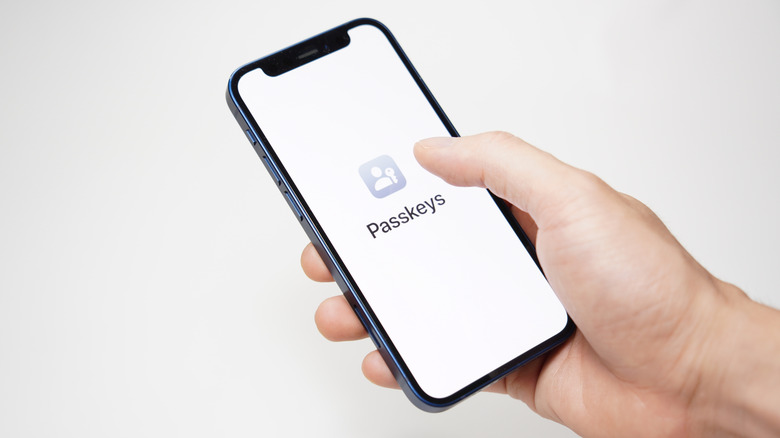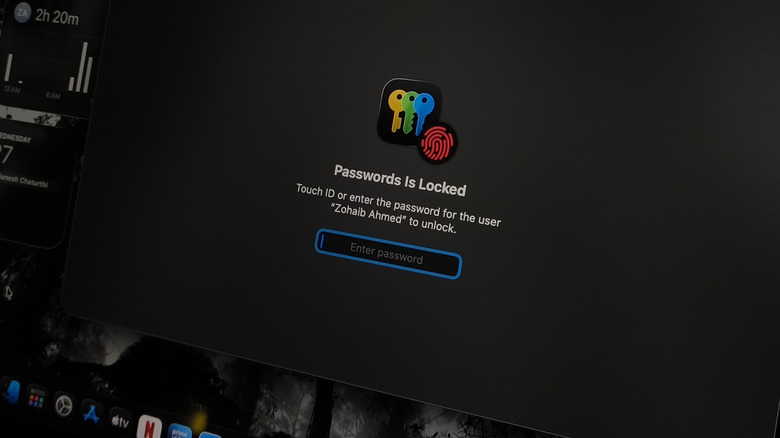Why It's Safer To Use Apple's Passkeys Option Instead Of Passwords
It's a little ironic that in an era where the entire tech world is screaming about how the future is passwordless, Apple decided to launch a brand new, dedicated Passwords app with iOS 18. It's almost like a signal that passwords aren't going away just yet. The thing is, maybe they should be. While the new app is a step up in convenience, beating the old method of digging through the Settings menu, the real game-changer for your digital safety is the other option nestled inside: passkeys.
Unlike passwords, which are just secrets that can be stolen, passkeys are on another level in terms of security. They rely on some clever tech called public-key cryptography to create two different keys. One key is public and lives on the website's server, while the other is a private key that is stored in a dedicated hardware component on your device called the secure enclave. When you log in, the two keys talk to each other to prove it's you, but your private key never gets sent over the internet. That means cybercriminals can't steal your login details through phishing attacks and server breaches the way they can with traditional passwords. It's a fundamental shift in how we prove who we are online, and Apple, working with giants like Google and Microsoft as part of the FIDO (Fast IDentity Online) Alliance, is all-in on this password-free future.
Is the Apple Passwords app safe?
While passkeys are the ideal, you still need a place to manage your old-school passwords, and that's where Apple's new Passwords app comes in. The app works well, but there are some concerns with it. Its greatest weakness is its lock, as there is no unique master password. The app is protected by the same password you use for your Mac's user account. This means anyone who has that password – a computer technician, a family member, or a scammer you've given remote access to – can waltz right into your entire digital life. If Face ID or Touch ID fails, the app just asks for your device passcode as a backup, offering a backdoor that a master password would seal shut.
Think about taking your MacBook for repair. You give the technician your Mac password so they can work on it, and now they can see every single password you have stored. That access is exactly why leaving your computer with a repair shop always carries an inherent risk to your privacy. Of course, all this isn't some new flaw introduced by the Passwords app, as this 'master key' setup has been how iCloud Keychain has worked for years. It's a trade-off that's fine for the average person whose biggest secrets are their Wi-Fi codes. The real risk only kicks in if you're guarding state secrets or frequently share your Mac's password with others. That said, some of the best password manager apps, like Dashlane and 1Password, can be a step up since they use a separate master password.

